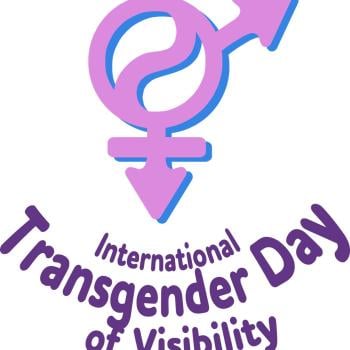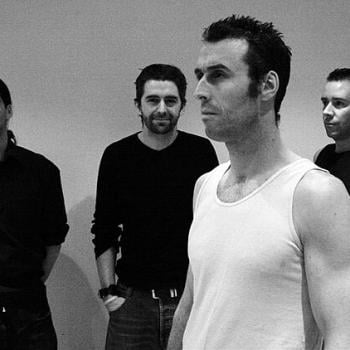This is the second in the series that started with the article on “Faith” by George Michael. In this article, “God” by Tori Amos is critiqued on how the work expresses faith and understanding a personal connection with God.
1994 may not stand out to most, but some events helped shape pop culture for the next generation. The North American Free Trade Agreement (NAFTA) was established, Schidnler’s List wins seven Oscars Awards, Kurt Cobain and Jacquline Kennedy Onassis pass away, The OJ Simpson legal case begins. Woodstock ’94 in Saugerties, New York is held, The World Series is cancelled due to the player’s strike. George Former becomes the oldest heavy weight champion in history. Tupac Shakur is shot in Manhattan. And, America Online launches the first public access to the World Wide Web. On February 3, 1994, Tori Amos releases her second full studio album, “Under The Pink.” The record included a funny little track, “God.”

While “Under The Pink” reached a double platinum certification in 1999, and hailed UK critic accolades, “God” was released as a single in the US, Australia and the UK. Cassette and CD B-Side versions were also released in the US and UK, making this track one to follow through a its musical trajectory.
Edna Gunderson wrote in USA Today about “Under The Pink” as being an album of “big strides” for Tori Amos, including that the album “finds her blasting patriarchy and breaking free of religious repression, victimhood and sexual guilt.” Such a strong statement about the album positions the track “God” in a space for analysis.
Framing God
The structure of the lyrics are more poetic than a verse-chorus song format. This allows Tori Amos to explore the points she is seeking to convey. The cryptic nature of the lyrics themselves stumbled critics who tended to focus more on the images in the video than the language of the track.
God sometimes you just don’t come through
Do you need a woman to look after you
God sometimes you just don’t come throughYou make pretty daisies pretty daisies love
I gotta find what you’re doing about things here
a few witches burning gets a little toasty here
I gotta find why you always go when the wind blows
tell me you’re crazy maybe then I’ll understand
you got your 9 iron in the back seat just in case
heard you’ve gone south well babe you love your new 4 wheel
I gotta find why you always go when the wind blows[give not thy strength unto women
nor thy ways to that which destroyeth kings]Will you even tell her if you decide to make the sky fall
will you even tell her if you decide to make the skyGod sometimes you just don’t come through
God sometimes you just don’t come through
Do you need a woman to look after you
God sometimes you just don’t come through

Deconstructing God?
Tori Amos, “God” – https://music.youtube.com/watch?v=cN3rzi7dZVQ
Tori Amos includes a spoken section in the song. It comes after the longest verse in the song.
“Give not thy strength unto women nor thy ways to that which destroyeth kings“
The inserted reading in a reference to Proverbs 31:3,
“Give not thy strength unto women, nor thy ways to that which destroyeth kings“(Proverbs 31:3 KJB).
The use of this near direct quote from the King James Bible version underscores the frustration with God Tori Amos presents in the work as a whole. The inclusion of this Proverb would suggest that the unorthodox structure of the song might follow that of the poetry from either the Proverbs or Psalms. A closer analysis shows the lyrics follow more a personal departure from faith, trust, security, and faith in God. The song situates a human understanding of God, not one founded on the exploration of God’s relationship with man to build faith. A contextualized socio-religious feminist critique in the lyrics unveils a prideful frustration with God and the included association with women through history. There is a gender bias invested in arch of the lyrics, which aids in a conscious critique of God. Retaining a firm personal dialectic with how God has unfairly interacted with women, the lyrics build tension over time including striking sarcasm to illustrate the frustration.
Reading God
The opening lines present an argument with the question. The question, “Do you need a woman to look after you” frames the argument of the lyrics. It is the leading question about how God relates to women. The assumption in the lyrics is of God’s limited nature, subscribing on God the boundaries of consciousness mankind wrestles with daily. Minimizing God opens the door for this question to be presented. Assuming God has limits, is there a need for a counter-balance to his work and association with the world? Does God need a sounding board and input from another, here defined as a female? The added inquiry leads toward more investment in searching about God.
Following the second section, this refrain now contains more point with a building tension about the understanding of God’s actions. The fourth section attempts to rationalize God’s actions and meaning. Positioning perspectives about God’s involvement along with pointed questions of frustration escalate the unsettling need to understand God’s rationale and direct association with terrestrial events.
Then, the Proverb quote is spoken. Placed here, the Proverb contextualizes God’s relationship with women as one of neglect. The inclusion is done specifically to point out to God that He has already stated and positioned women as the failure of mankind. Women, as the lyrics suggest using Proverb 31:3, telegraphs to the audience (subliminally) and God (directly) that women are seen as weak, inferior, unable to secure a level of acceptance by God, victims in the creation, and the ultimate destruction of mankind. The Proverb, as read in the context of this work, pushes back against God with a deliberate intent to extract the female voice, character, and nature from God.
The following two lines, “Will you even tell her if you decide to make the sky fall/ Will you even tell her if you decide to make the sky”reifies the overall dissatisfaction and now overt sarcasm against God. Mocking the creation of the sky in Genesis 1:18 (NIV), the word “sky” is substituted from other translations where “heaven” is used. Is this a deliberate exchange? Would the use of “heaven” be too bold, or frame a level of connection with God? Replacing “heaven” with “sky” codifies a terrestrial argument against God. Keeping the narrative physically centered, “sky” can be seen as a metaphor of a limited focus. The length of the sky – referring to the boundaries of the world – is limited by that which one phenomenologically perceive. “Heaven” would employ a limitless space beyond human consciousness. Keeping the argument on an earthly plane points to a conclusive, insulated, and defined limit of existence. These firm structural boundaries incapsulate women’s interactions with man directly and without the ability to usurp gender dominance. The lyrics argue with a feminist critical tone against this fixed narrative. The sarcastic sting of these two lines again is to emphasize to God an irrational and assumed reductive positioning of women in the world.
The final section is a refrain of the opening. These lines have been transformed from a statement with a question to one of a direct point of contention against God.
God sometimes you just don’t come through
God sometimes you just don’t come through, babe
Do you need a woman to look after you
God sometimes you just don’t come through
Do you need a woman to look after you?
God sometimes you just don’t come through

Explaining God
Tori Amos notes in an interview with Cream magazine – quoted in SongFacts – her intent behind the song.
“There’s a division of power, male and female power, and there’s a division within my own being. There’s been a dishonoring of us with each other, and us with ourselves, and women against women, and men against men, and women against men… and that’s how the song ‘God’ got written. The institutional God who’s been ruling the universe, in the books, has to be held accountable. I want to have a cup of tea with him and just have a little chat. I feel like the song is a releasing, a sharing. It’s honest and loving. And it’s sensuous. It’s the goddess coming forth and saying, ‘Come here, baby. I think you’ve had a bit of a rough job, and I don’t mind helping out now.’ Which I think is really cute.”
Falling back on her Methodist upbringing, Tori Amos called the aid of her father, a pastor, to help include bible verses which specifically address a negative point against women. In an interview with WHFS Press – quoted in SongFacts – Tori Amos notes this specific intent and language to be included in the song “God.”
“Well, I’m going to tell you something cute about my dad. I called him from the studio and I said, ‘Look, I need a quote from the Bible that shows the raw deal women got.’ I call him back, and I’m in England ’cause we’re mixing, and I just needed this quote and my father says, ‘Would you like to hear my quotes?’ He gives me two pages of quotes from the Song of Solomon which says, ‘Thy globes are like ripe sweet berries; thy navel is like a cup which poureth spring water.’ It just goes on forever and I say, ‘Dad, no, this is not representative of what I’m talking about.’ He says, ‘Yeah, but these are beautiful quotes.’ And it was very interesting to me how my father, bless his cotton socks, just can’t acknowledge the way that the Church has treated not just women, but people in other cultures – it’s hard for him as a minister to see the other side of Christianity and what it’s done in the name of God.”
There is no denying Tori Amos’ agenda with this song; articulate the overt representation of women as a negative image in the bible. Outlining this argument gives leverage to Tori Amos to further unpack issues of socio-religious oppression against women overall. Juxtaposing images of religious practices from orthodox Jewish culture, Indian rat philosophy in Karni Mata Temple, and snake handling, Tori Amos weaves her feminist critique against organized and cult religious practices.
Popular critics point to “God” as being a provocative narrative speaking against institutionalized religion.SMF magazine published a comment in 2025 articulating a pop cultural view in support of Tori Amos’ work against religion and, by proxy, God.
“In this soundscape, Amos doesn’t seek to offer clear-cut answers but rather to compel the listener to engage with the complexities of their beliefs and the institutions they trust or challenge. ‘God’ is not just a song, it’s an audacious form of spiritual discourse set to music, prompting a deep examination of how we grapple with the divine in an era that often feels as though it has left the gods behind.”
Such a published position closes the door on the conversation about one’s relationship with God. Tori Amos was not silent on her perspectives about religion and a personal desire to expand her relativistic approach to self-selecting spiritual practices for personal use. Tori Amos’ 2004 interview in Women Who Rock magazine – quoted in SongFacts – describes her broad appropriation of spiritual practices to balance gender binary references from being exclusive to personally inclusive.
“The woman in this song, the voice of this song, was really about a consort of God. That’s the one song where, in all my work, I’m exploring God’s lover. And I’m not talking about Mary the mother, or Mary who got ‘impregnated’ by God. I’m talking about – if we pull back and look at Christian mythology, and the idea that there is a God, why wouldn’t there be a Goddess? In all of nature, there is not a male-only species. There has to be a female and a male.”
Expanding her accumulation of spirituality and discontent against religious practices, Tori Amos noted a lengthy conversation revealing these insights for ITV 1, “Faith and Music” (UK) on February 29, 2024:
“Of course I believe in Jehovah, I believe in Buddha, I believe in Jesus, I believe in the Magdalene, I believe in the great peacemaker, in every great deity that has ever existed, I believe in Muhammad, Allah. I believe Kali is as real as Jehovah.”
“My particular faith system is always growing all the time; I do have my roots in Native American spirituality because it’s what I was taught as a little girl. It’s very much about a way, a path, their ceremony but you can be by yourself.”
“I remember having a dual when I visited my mother’s father who was of the Eastern Cherokee nation; life was very colorful and musical. I think he found life, aligned with the spirit and the spirit world that was real to him as you are to me and that he was very aware of the ancestors and tradition, honor, the great spirit, our true mother the Earth. So completely different thinking then going to the Methodist church on Sunday which was about an authority, patriarchy and hierarchy for instance.”
Further, Tori Amos positions her settled reckoning with her Methodist roots and adopting more of a spiritual base.
“When somebody begins to take authority over you, as a soul where they try to get you to doubt yourself or lose you voice, to not speak, your begin to lose the essence of who you are. I did see that a lot, not only in the Christian church but in every organised religion…”

Knowing God?
Capturing Tori Amos’ own words about religion and spirituality gives a deeper understanding to the discourse in “God.” Tori Amos contextualizes “God” in a limited character. The nature of god, as read by Tori Amos, is one who exploits a bias against genders. Rather than investigating the points within Christianity Tori Amos finds oppressive against women, Tori Amos elects to reject religion discipline and replace it with an appropriative approach to spirituality. “God,” then expresses tension and angst against God through a pop cultural feminist lens. Socio-religious accumulation is held higher than personally investigating visible inaccuracies in Christianity. Tori Amos shutters a history of Methodist involvement for a broad free-selective approach to spirituality. Extracting bible verses to frame an argument against God grants a sense of accomplishment. The argument Tori Amos is expressing is a phenomenologically centered. The perception of god as being an oppressive dominant force with an irrational focus against women is conceptualized in what Tori Amos witnessed through her upbringing. The exposure without any religious pedagogical lead manifest in a pop cultural gathering of various spiritual philosophies. Branding this phenomenological approach to the track “God,” Tori Amos highlights the necessity for accurate biblical knowledge, understanding, and discernment. Devoid of this approach, pop culture is left to flounder without any guardrails toward a personal connection and relationship with God. Through a critical reading of “God,” Tori Amos is not interested in following a relationship with God. Rather, the work states a feminist critique against God as referenced, misunderstood, and selectively contextualized through a blurred pop cultural perspective. Maintaining an open-ended approach to modifying one’s spiritual path, Tori Amos exploits socio-religious practices to qualify her own inner questions about spirituality. Believing in multiple gods from various religious practices may have an appeal for Tori Amos, as it aligns with her musical landscapes which include world musics and alternative rock sounds in her otherwise acoustic-centered works. This same leveling and mass adoption of religious “styles,” if you will, allow Tori Amos her own desired flexibility to not be grounded to a religious discipline. Rather, Tori Amos is content with challenging what is read as God’s will and intent to subjugate women unfairly and in some cases violently. Tori Amos does not expand God for audience to embrace. The track “God” minimizes the understanding of God to a human level for the manipulation and reframing of a assumed character. God, for Tori Amos, is an equal player in the phenomenological game of chess exposed as life.















